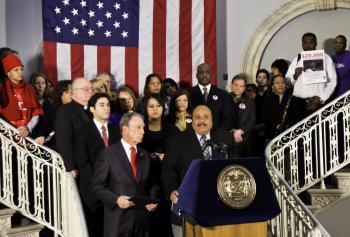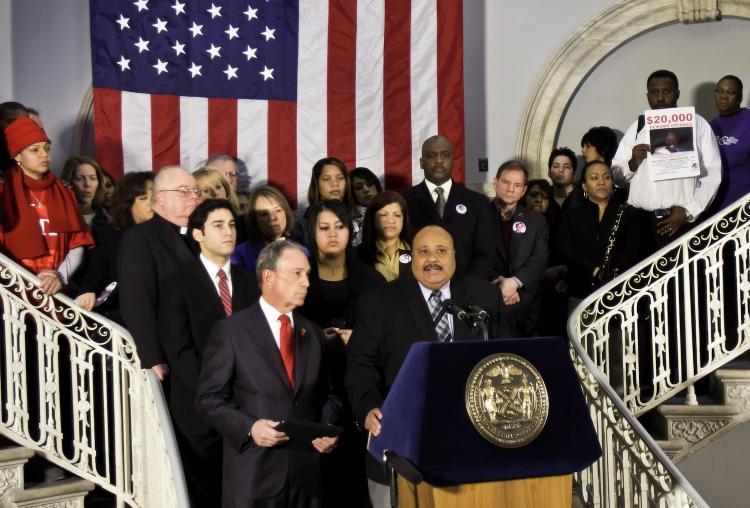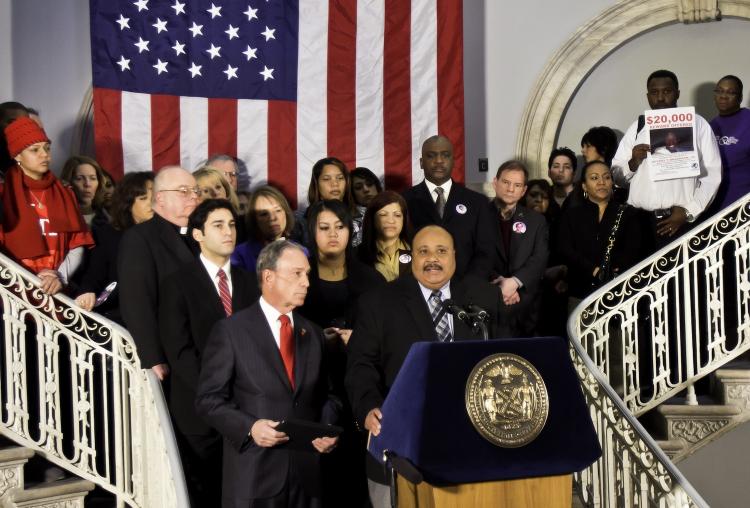Mayors Demand Gun Crackdown
Every day in America, 34 lives are ended by gunfire. That statistic came to life at City Hall on Monday, where Mayor Michael Bloomberg had assembled the families of 34 such victims of gunfire.

LEGACY OF NONVIOLENCE: Martin Luther King III stood with the families of 34 victims of gun violence and with Mayor Bloomberg (L) to call for a solution to the problem of gun violence in the wake of the shooting Tuscon, Ariz. Phoebe Zheng/The Epoch Times
|Updated:






